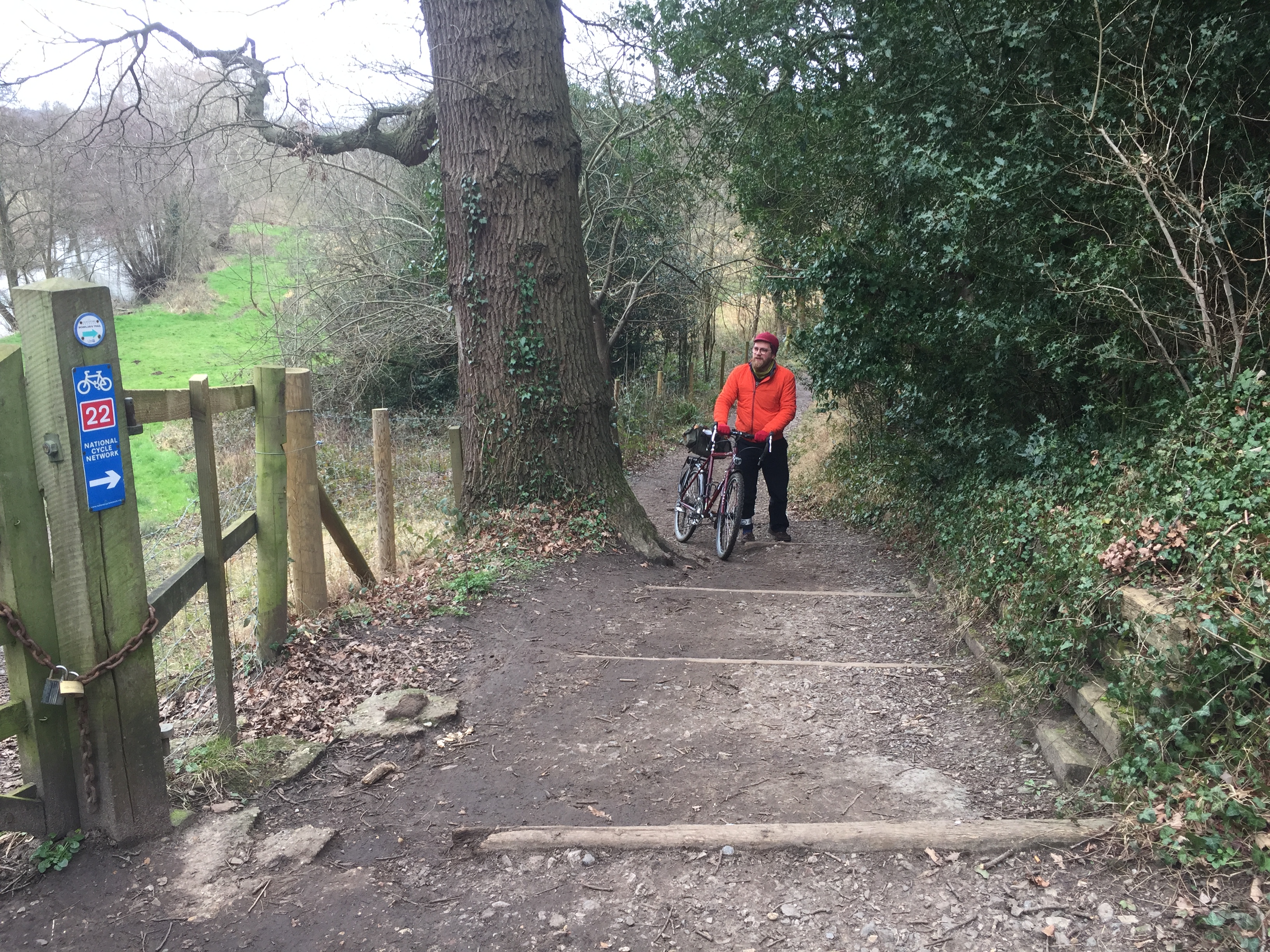“Copy Scotland” to benefit rural economy

In Scotland, which enjoys responsible access laws, off-road and leisure cycle tourism is estimated by Transform Scotland to contribute between £236.2m and £358m per year. Based on preliminary findings from its “Off-road access” survey, Cycling UK believes by adopting the Scottish model, cycle tourism would flourish in rural areas contributing to more jobs and spend.
Responsible access laws mean walkers, cyclists and horse riders can access the countryside in all areas unless explicitly told they cannot. In England and Wales, entry to the countryside works to a “presumed trespass” model, restricting rights of way to a limited network, such as public footpaths and bridleways.
Cycling UK argues responsible access laws would not just benefit tourism and the leisure industry, but would also enhance the opportunities for motor traffic-free cycling, particularly for commuters and school children.
Under current laws cyclists have a right to use a mere 22% of England’s rights of way network. Whether a route is a footpath, a bridleway or a byway is generally determined by its history of past usage, and not at all by its suitability. This can mean cycling may be permitted on an unrideable muddy bridleway but not on a tarmac-surfaced footpath, even where it is used privately by motor vehicles.
The EFRA Committee reports that while England has seen a rise in tourism spend in the past year from both domestic and international visitors, the majority of this is in the urban environment, with over 50% of international spend in London. Visit England figures show that in 2014 just 18% of domestic overnight trips were taken to rural areas, down from 22% in 2012.
Roger Geffen MBE, Cycling UK’s Director of Policy, said:
“Despite England enjoying a tourism boom, as ever the rural economy is missing out. This EFRA inquiry is right to look at how we can change this, and facilitating cycle tourism is clearly part of a solution which will benefit tourists and locals alike.
“The best way to make cycling easier and more attractive in our countryside is to rethink our rights of way laws. They’re archaic and confusing even to the experts. England should copy Scotland and introduce responsible access laws.
“We’ve seen in Scotland how off-road cycling can thrive in harmony with all other outdoor users while contributing greatly to the local economy. Cycling UK now wants to see England and Wales enjoy the same benefits, which will mean more jobs, less congestion and a greater appreciation of our countryside.”
Cycling UK’s response also includes the following recommendations:
- Bodies responsible for promoting cycle tourism should learn from the success of rural traffic-free recreational cycle routes, and how these routes can promote the tourist economy.
- Extending tax breaks currently available for rural businesses (such as village pubs and petrol stations) to rural cafés and other enterprises which support rural tourism. This could include those selling or hiring out bicycles, adapted cycles (which can be used by people of all abilities) and electrically assisted pedal cycles.
- Rural tourism can and should be seen as complementary to traditional land uses and rural industries, rather than perceived as working against them.
- Where a National Park covers parts of several highway authorities, they should consider delegating their highway powers to the National Park authority, enabling it to manage the provision of parking facilities, public transport and sustainable transport planning within the park.
Cycling UK’s full response to the EFRA inquiry can be found online.
Notes to editors
- Cycling UK and OpenMTB launched their “Off-road access” survey on 24 August, and it will run until 31 October. The survey can be accessed at: www.cyclinguk.org/offroad-survey and currently has 5,715 responses.
- Cycling UK, at 138 years old, is Britain’s oldest transport organisation and until recently was known as CTC, the national cycling charity. www.cyclinguk.org
- Cycling UK has a long established history of facilitating better access to the countryside. In 1968 Cycling UK secured access for cycles to use bridleways. The organisation later fought successfully for a presumed access policy in the Scottish Land Reform Act (2003), and ensured that the Natural Environment and Rural Communities Act (2006) included provision for restricted byways rights to be claimed on the basis of past cycle use.
- Cycling UK most recently campaigned for increased access in Wales with its Trails for Wales campaign, www.cyclinguk.org/campaign/trails-wales following the Welsh Government consultation: ‘Improving opportunities to access the outdoors for responsible recreation’ http://gov.wales/consultations/environmentandcountryside/improving-oppo…. The Green Paper received 5,796 total responses, with over 4,000 responses backing Cycling UK’s calls for adoption of Scottish-style access laws.
- For Cycling UK’s full policy on off-road issues use the “Off-road access” filter on this page: https://www.cyclinguk.org/campaigning/views-and-briefings
- For more information on the EFRA inquiry go to: http://www.parliament.uk/business/committees/committees-a-z/commons-sel…;
Press contact information
Cycling UK Press Office
Email: publicity@cyclinguk.org
Telephone: 01483 238 315 / 07786 320 713


